The best 65-inch TV in Australia 2025: big screens for every budget
The best 65-inch 4K and 8K TVs for big-screen action
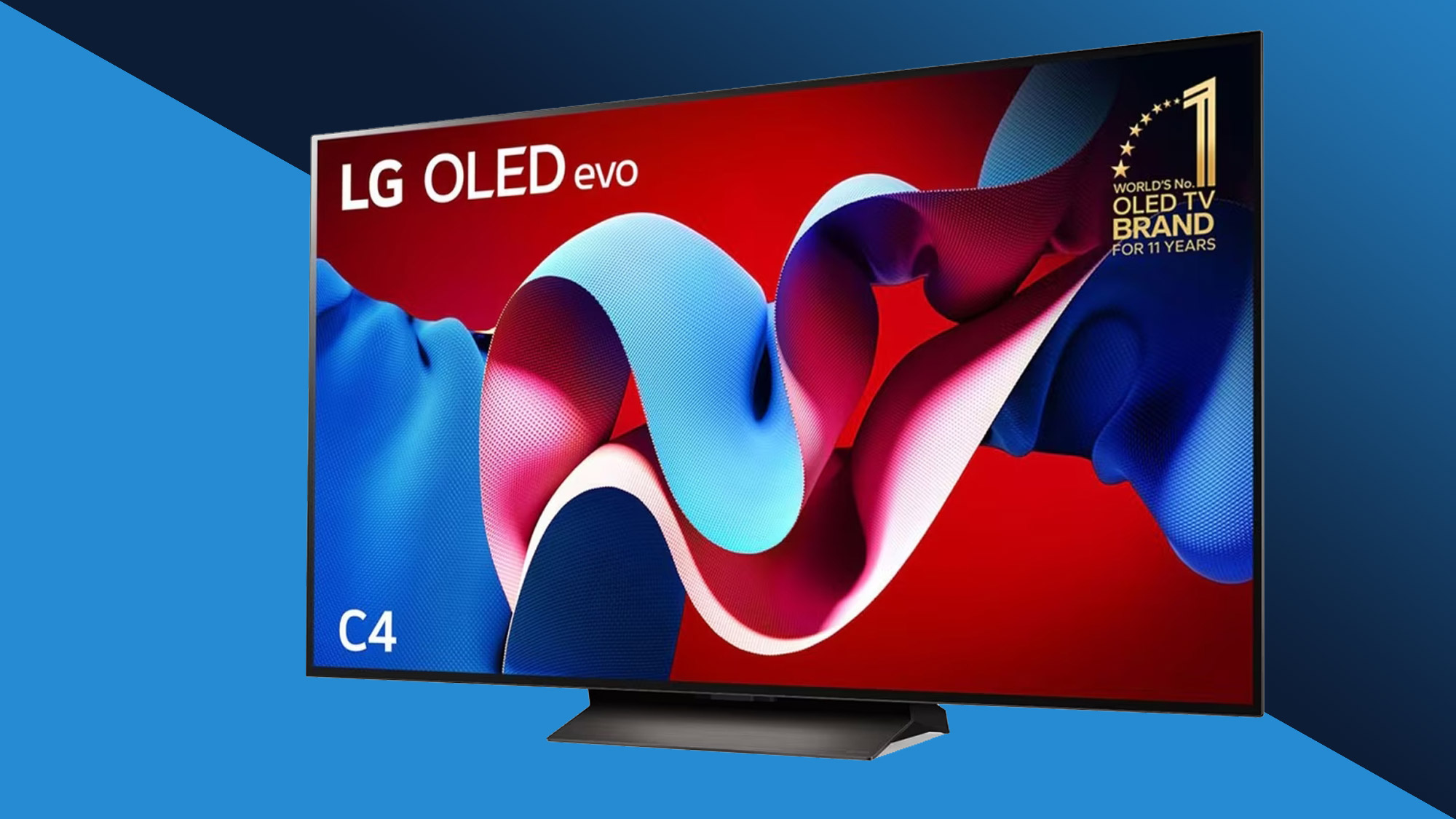
The best 65-inch TVs strike the perfect balance between immersion, size and budget, and have fast become one of the most popular sizes of TV in Australia. Providing plenty of screen real estate to show off your movies and games, yet 'small' enough to fit into the majority of Australian homes, a 65-inch TV could be just the thing you need to amplify your home cinema.
Fortunately, a 65-inch TV no longer needs to cost the earth, with many falling into affordable territory and others receiving generous discounts during major sales events. Naturally, if you have the extra cash to spend, you can get yourself a truly exceptional screen – some of the best OLED TVs with next-gen tech or best 8K TVs are available at this size.
When we test 65-inch TVs, we take objective readings of various metrics including colour accuracy and brightness levels, and combined with our subjective opinion of the screen's overall performance against its price and feature set, we settle on the list below.
The quick list
Below, you’ll find a roundup of what we consider to be the best 65-inch TVs currently available in Australia. You can also jump to a more detailed review of every pick and our price comparison tool to help you find the best deals.
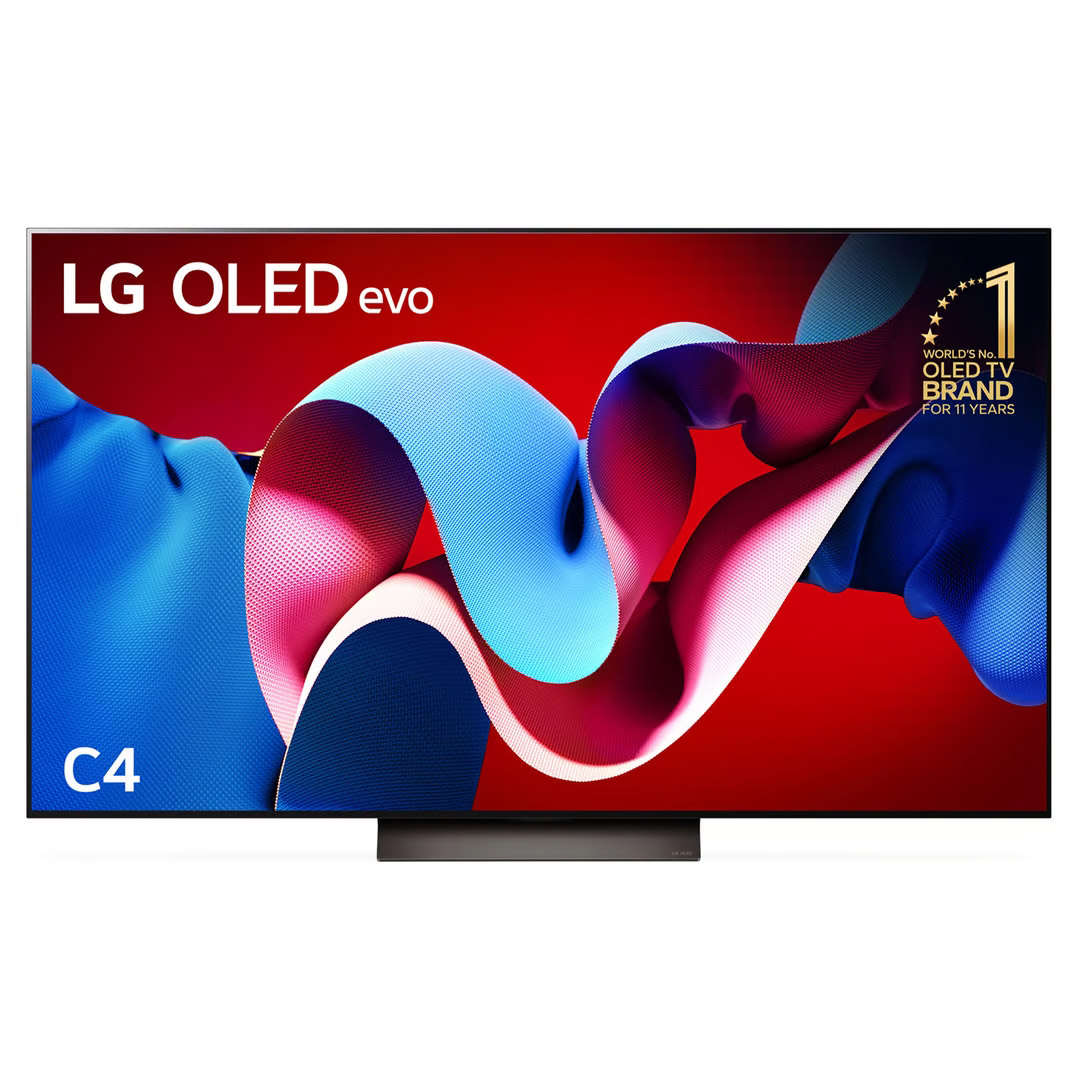
Best 65-inch TV for most people
The LG C4 delivers a gorgeous picture from its OLED screen, offers great gaming support and an excellent user interface. It's practically perfect in every way.
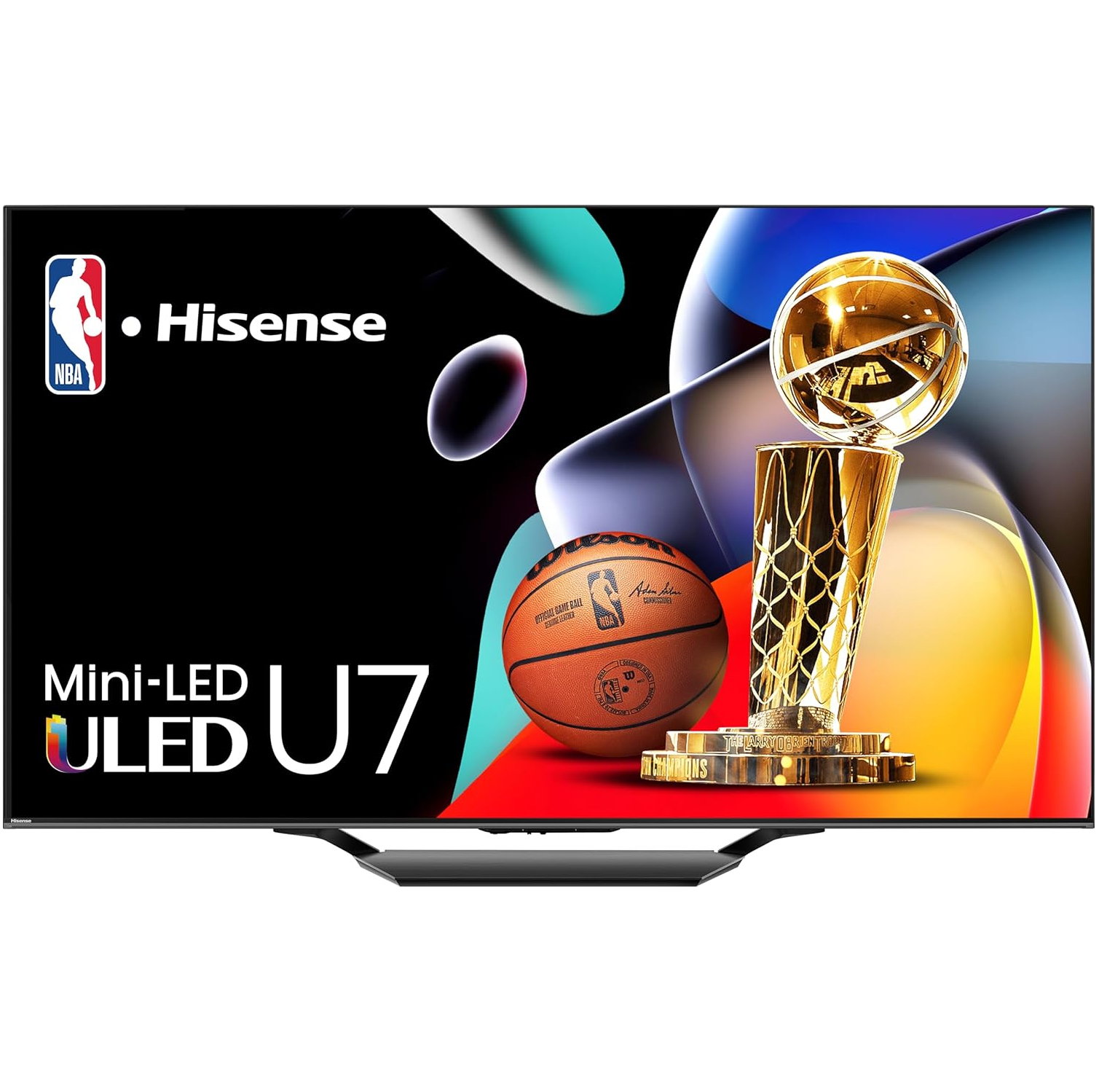
Best budget 65-inch TV
The Hisense U7N mini-LED TV serves up an excellent picture for its extremely competitive price and backs it up further with a stacks of smart and gaming features.
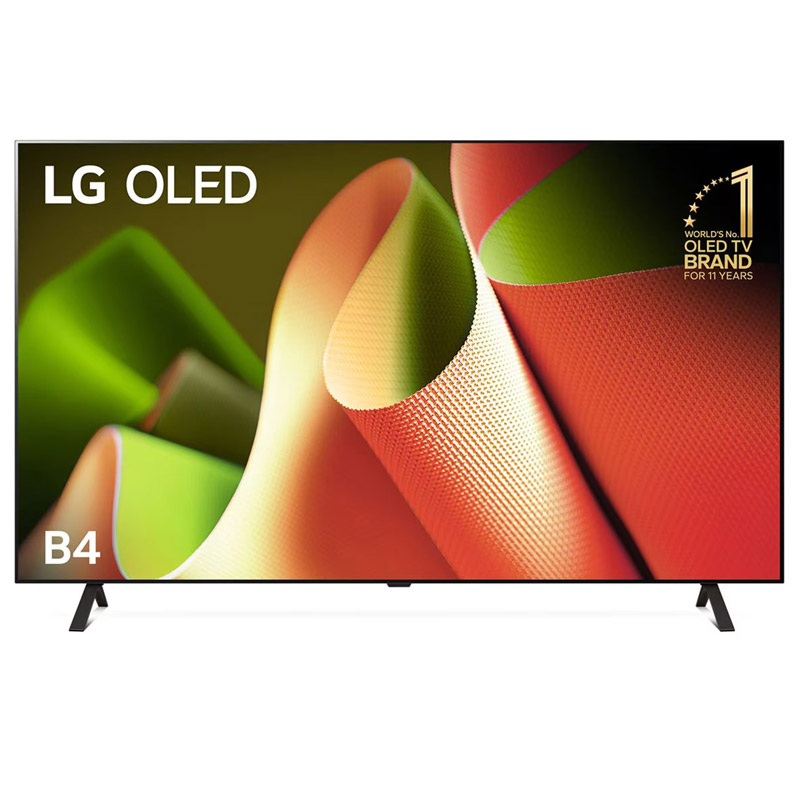
Best mid-range 65-inch TV
Budget by OLED standards but ultimately mid-range, the LG B4 offers plenty in the way of picture quality and gaming features that help elevate it against similarly-price mini-LED sets.
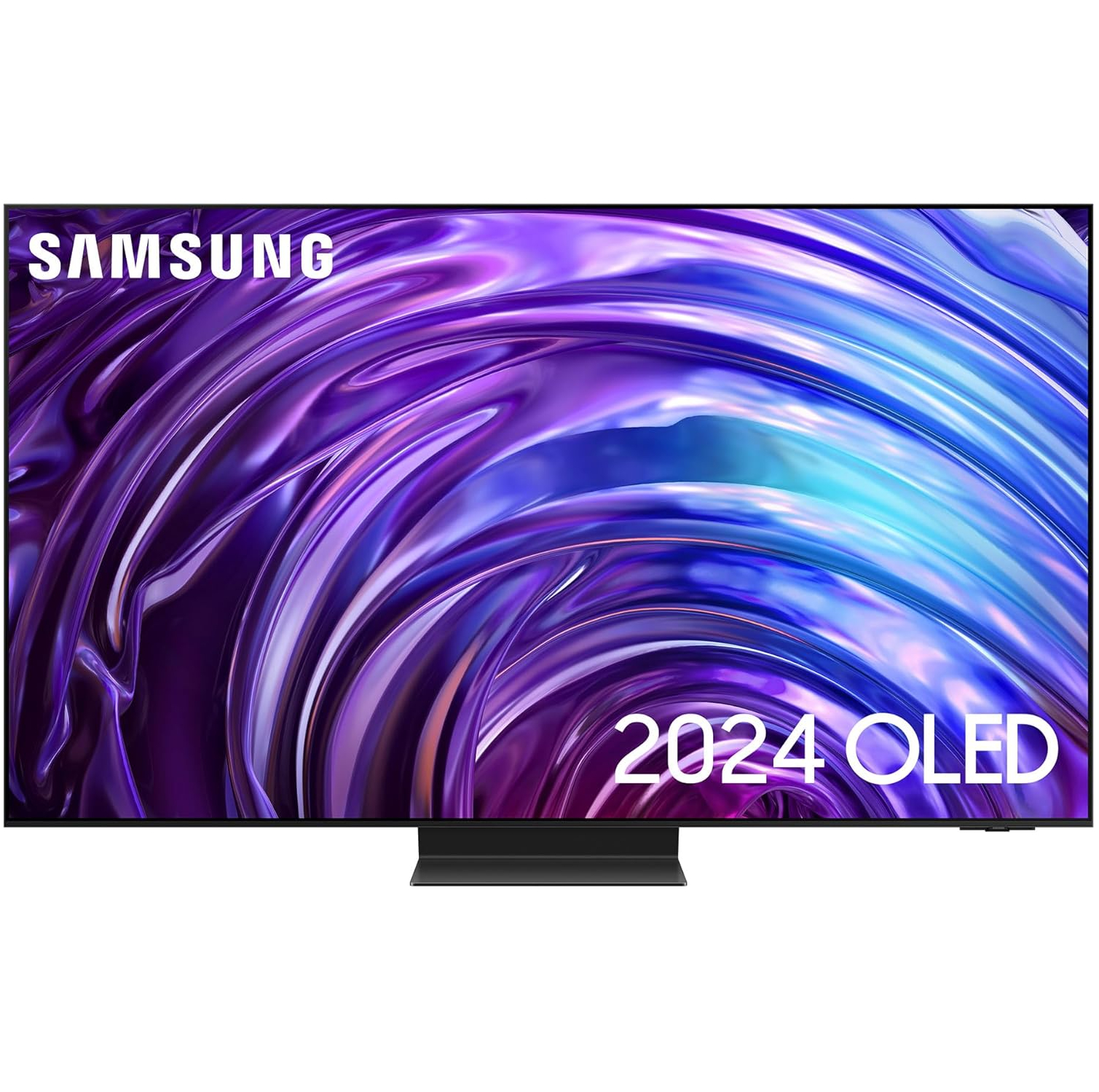
Best 65-inch premium OLED TV
Samsung combines its QD-OLED and ingenious anti-reflection screen technologies to create a TV that delivers incredible pictures. It's a stunning looking screen too and offers stacks of gaming features.
Read more below
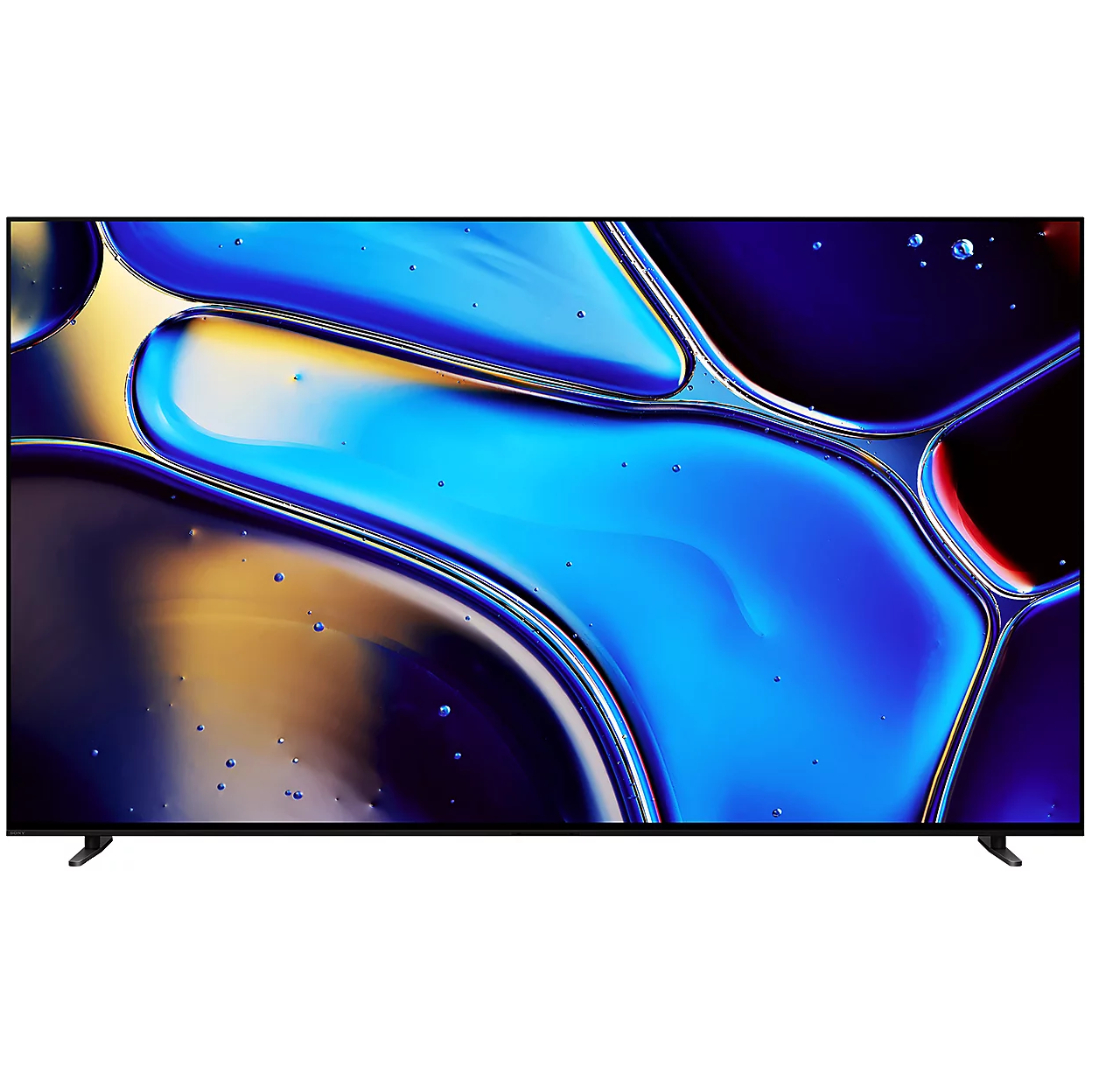
Best 65-inch OLED TV for sound
The Bravia 8 delivers a scintillating picture and is 'Perfect for PS5'. But it's a built-in audio system that sets it apart from the rest of the OLED market.
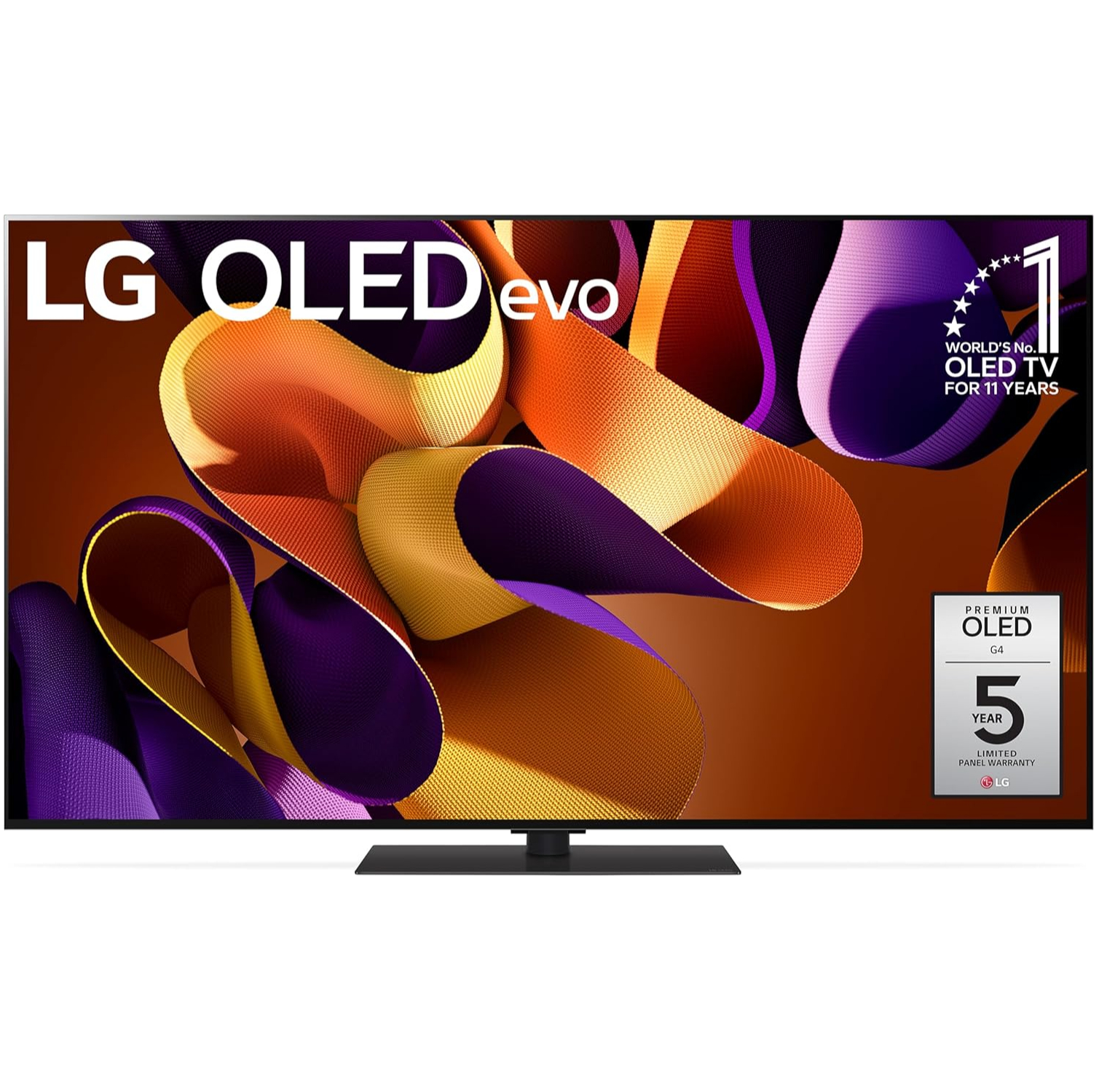
Best 65-inch OLED TV for wall-mounting
A sleek, attractive design with a delightfully thin depth, the LG G4 is the ideal TV to go on the wall and even comes with its wall-mount in the box.
The best 65-inch TVs of 2025
Why you can trust TechRadar
Below you'll find full write-ups for each of the best 65-inch TVs in our list. We've tested each one extensively, so you can be sure that our recommendations can be trusted.
The best 65-inch TV overall
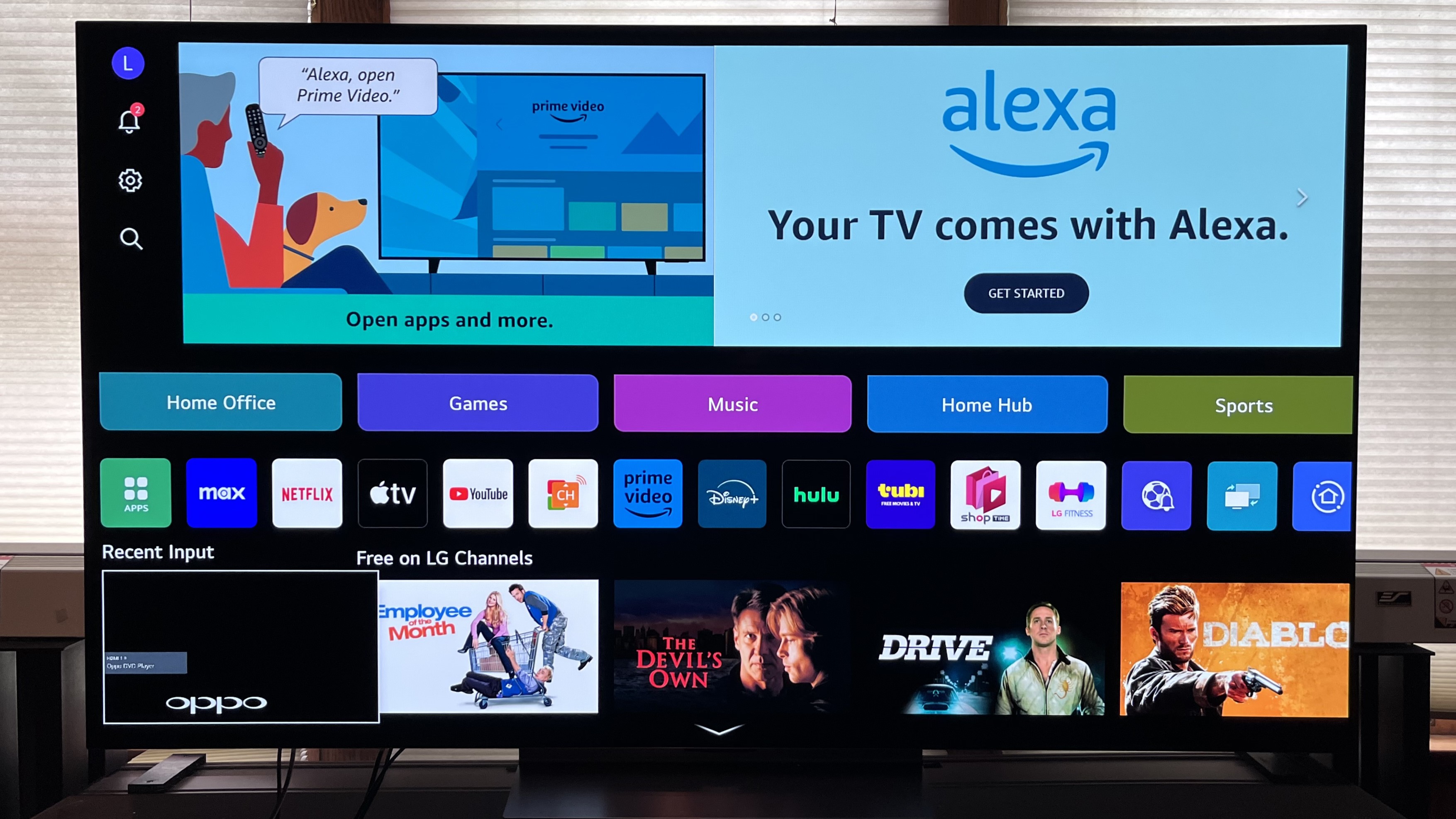
1. LG C4
Our expert review:
Specifications
Reasons to buy
Reasons to avoid
✅ You want a stunning gaming TV: The C4 has four HDMI 2.1 inputs, supports up to 144Hz and has cloud gaming options.
✅ You want a TV that's built for movies: A brightness boost and a new Dolby Vision Filmmaker mode has made the LG C4 OLED a first-class option for serious movie fans.
❌ You want the brightest TV possible: The aforementioned brightness boost does help, but the fact is mini-LED TVs will go brighter.
❌ You want a cheap TV: It costs less than the true flagships, but the C4 can still be a investment outside of major sales periods.
The LG C4 OLED is a tremendous TV that delivers the perfect combination of picture quality, built-in sound, gaming features and an intuitive user interface, making it one that we think should suit the vast majority of buyers in Australia.
It receives a number of notable improvements over its C3 predecessor, namely a boost to brightness thanks in no small part to a new Alpha 9 AI 4K Gen7 processor. This new chip also gives the C4 more accomplished upscaling credentials, which alongside a new Dolby Vision Filmmaker mode that's accessible when watching HDR content in that format, means movie fans should find they're well catered for.
What should appeal to the Australian audience is just how well the C4 performs in brighter conditions. As we said in our review, "LG’s mid-range OLED may not be capable of hitting the same high brightness peaks as Samsung’s flagship, but its image retained a punchy quality even when competing with other light sources in the room." Furthermore, "its screen did a great job of filtering out light reflections, which allowed dark images to retain a high contrast level even with room lights turned up."
The C4's built-in speaker system does a fine job, with dialogue in particular coming through clearly and the AI Sound Pro mode proving to be actually quite useful.
The LG C4 is also an excellent gaming TV with HDMI 2.1 support across all four of its ports, VRR and ALLM. New LG TVs for 2024 are also the first to be 144Hz certified by Nvidia, making them perfect for PC gaming as well. LG's on-screen Game Optimizer menu also makes it quick and easy to adjust specific settings mid-game.
Read our full LG C4 OLED TV review
The best budget 65-inch TV
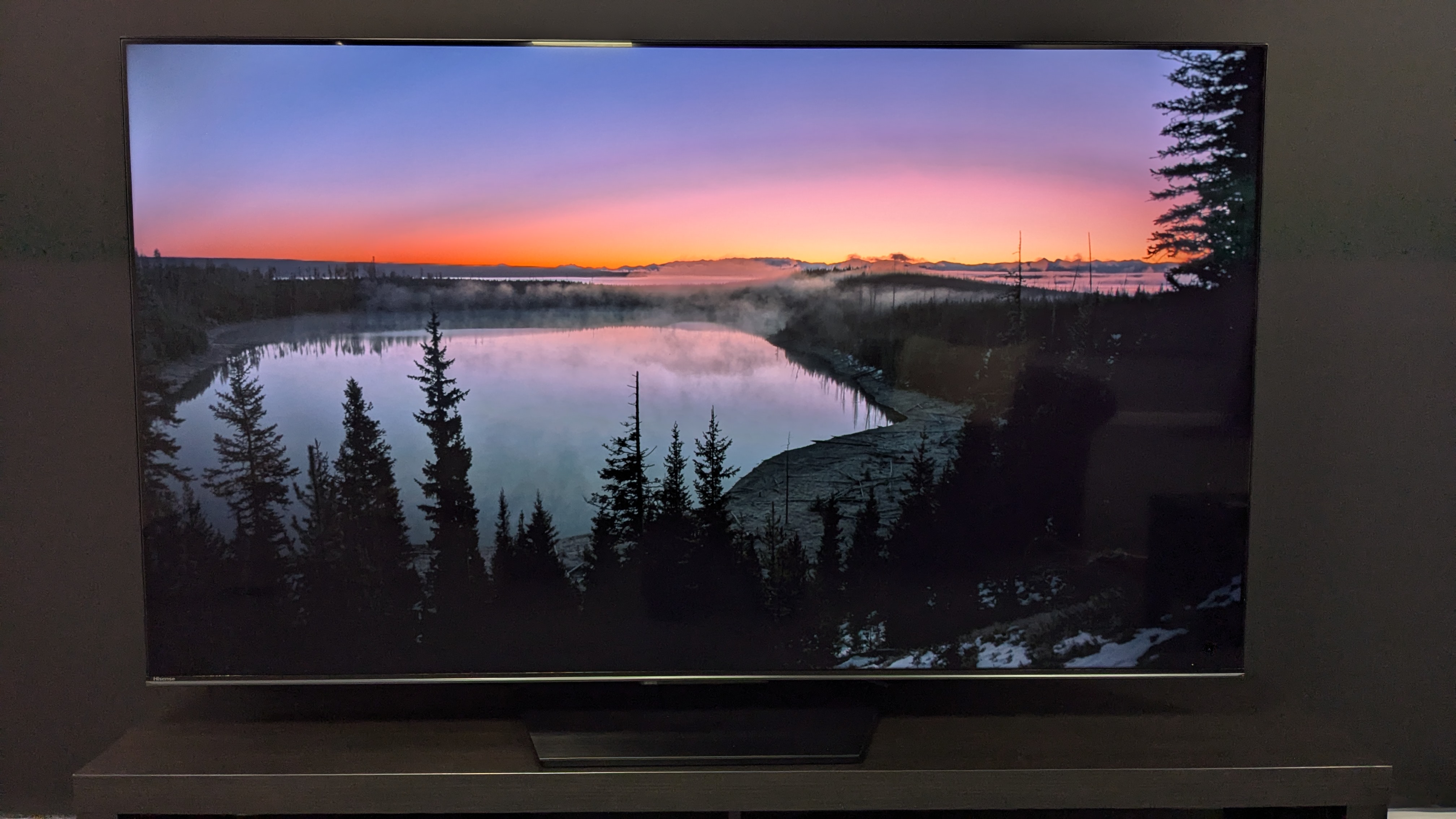
2. Hisense U7N
Our expert review:
Specifications
Reasons to buy
Reasons to avoid
✅ You want outstanding value: Dynamic pictures, great gaming performance and features, and Google TV – the U7N delivers it all and also saves you money.
✅ You want a well-equipped gaming TV: The U7N carries up to 144Hz refresh rate, Dolby Vision gaming and VRR – features typically found on pricier sets.
❌ You'll be watching in large groups: The U7N's picture fades when viewed from off-centre, with reduced contrast and more obvious backlight blooming.
❌ You don't want to adjust settings: While the U7N's picture presets are adequate, it requires experimentation to get the most accurate images.
The Hisense U7N easily delivers some of the best bang for your buck in a 65-inch screen size, providing great quality images on a budget, a suite of useful gaming features, the Google TV smart TV platform and more – all for (usually) under AU$1,500.
Dynamic, bright and colourful, the U7N offers excellent picture quality for the money. It thrives with 4K Dolby Vision sources, showing strong details, accurate textures, rich contrast and solid black levels that can compete with some of the best mini-LED TVs – especially for the budget price it is. It's not all perfect as there is some backlight blooming, motion handling can be inconsistent and off-centre viewing weakens picture quality, but some of this can be lessened by adjusting picture settings.
Gaming is another highlight for the U7N. It supports up to 144Hz refresh rate, VRR including AMD FreeSync Premium Pro and Nvidia GSync, and Dolby Vision gaming – features that in some cases aren't found on more premium gaming TVs. Couple that with a great all-around picture and performance and the U7N is a real gaming contender.
The Hisense U7N shows its budget design in some places. Its built-in sound lacks the prowess of more premium sets, with unimpressive Dolby Atmos and a limited soundstage, and its picture can be hit-and-miss, but it is tough to argue against just how good value the U7N is.
Read our full Hisense U7N review
The best mid-range 65-inch TV
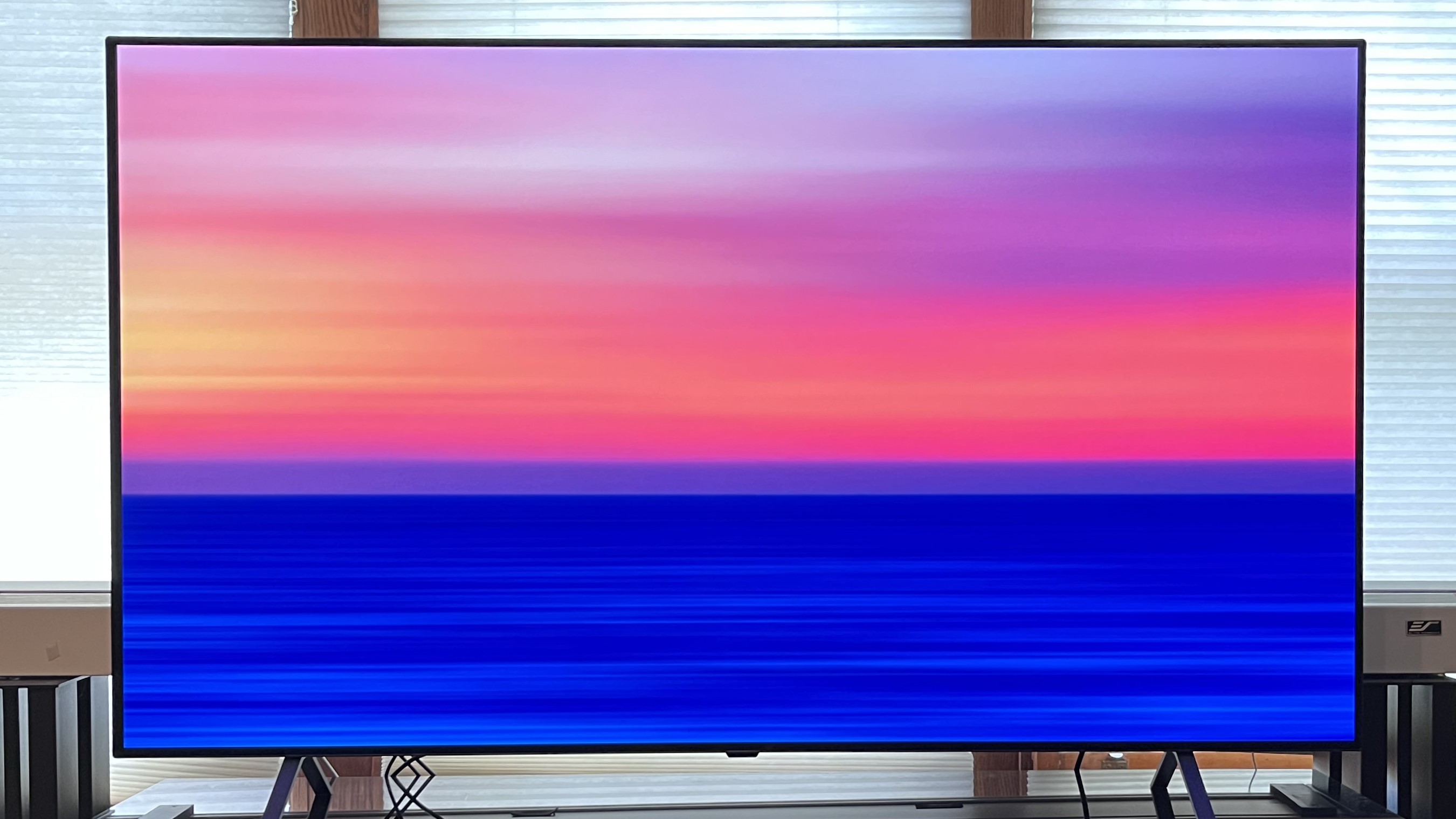
3. LG B4 OLED
Our expert review:
Specifications
Reasons to buy
Reasons to avoid
✅ You want a budget OLED: The B4 is among the most affordable OLED TVs and is a fantastic entry-point into the technology.
✅ You want a well-featured gaming TV: With up to 120Hz refresh rate, VRR, ALLM and AMD FreeSync Premium Pro, the B4 OLED is a fantastic gaming TV.
❌ You want the brightest picture: The B4 OLED isn't exactly a dim TV, but the fact is there are brighter OLED TVs out there.
❌You want great built-in sound: The B4's audio system does the job, but you'll want to connect a soundbar for the best performance.
The B4 is LG's entry-level OLED TV, although by pricing standards it sits more within mid-range territory. Still, it presents itself as a screen for those who want to invest in OLED technology but don't have the means to splurge on more premium sets. It also performs incredibly well against similarly-priced mini-LED TVs, such as offering better off-axis viewing and coming with excellent gaming support.
LG has bestowed HDMI 2.1 compatibility across all four of the B4's HDMI 2.1 inputs (compared to just two on the B3) bringing it inline with its C4 and G4 siblings and being more feature-packed than some of its closer peers in the process. Admittedly, the picture itself doesn't get a huge upgrade over its predecessor – its brightness remains the same for example – but a new processor does help improve its upscaling capabilities and eke out more detail in 4K content thanks to Dynamic Tone Mapping.
It isn't the strongest performer where built-in sound is concerned – if that's your flavour then check out the Sony Bravia 8 at #5 on this list – but an external soundbar or sound system will fix this no problem. Elsewhere, however, the LG B4 is a sensational screen and, like its pricier siblings, is a great option for gamers.
The best 65-inch premium OLED TV
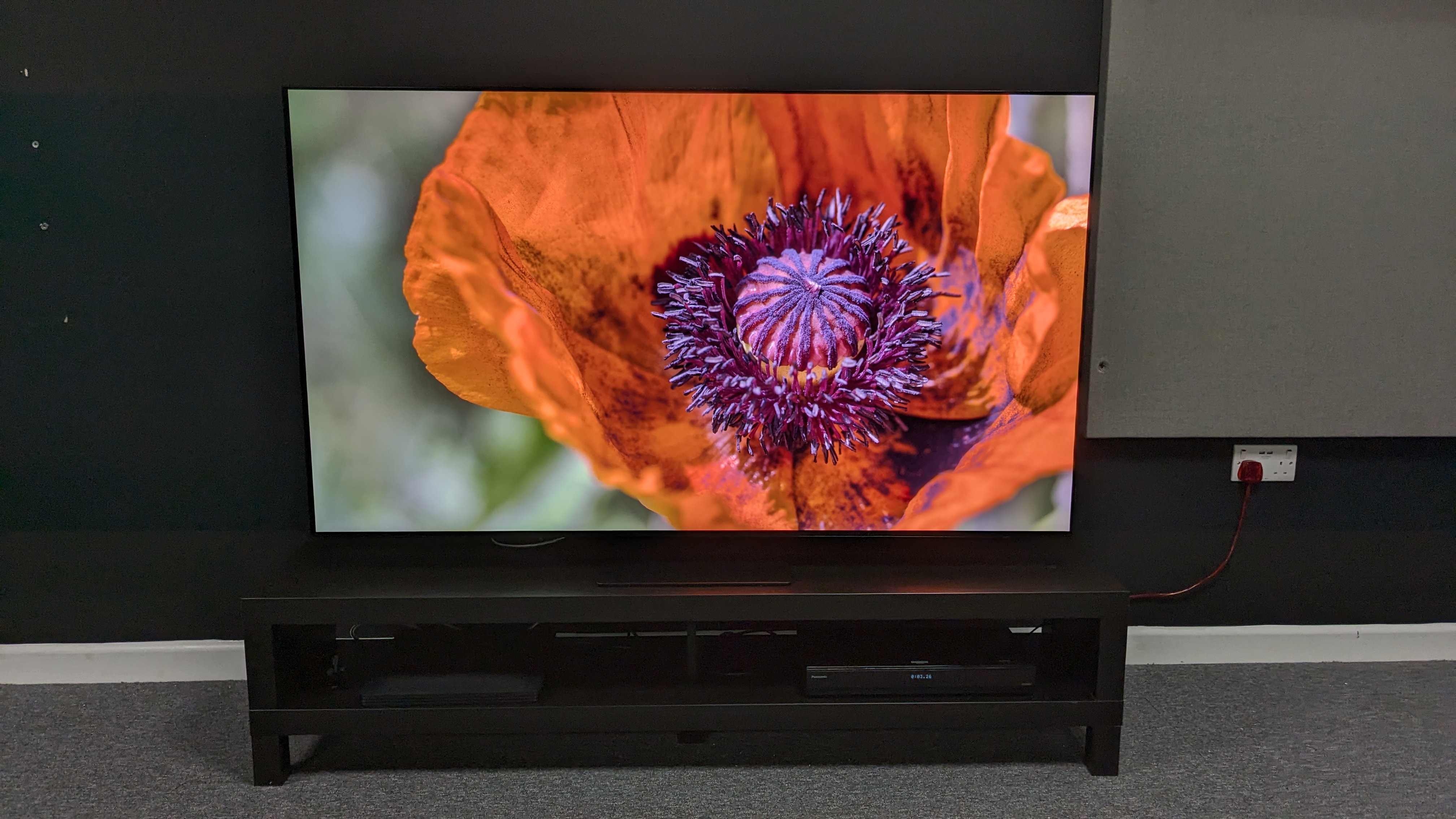
4. Samsung S95D
Our expert review:
Specifications
Reasons to buy
Reasons to avoid
✅ You want excellent picture quality: QD-OLED and anti-reflection tech combine to give the S95D one of the best pictures we've ever seen.
✅ You want a premium TV for gaming: The S95D comes stacked with gaming features such as 144Hz and VRR, and games look great on it.
❌ You have a budget: The S95D carries a premium price for its features and will test a lot of people's budgets.
❌ You need Dolby Vision: The S95D supports all HDR formats except for Dolby Vision.
The Samsung S95D takes OLED picture quality a step further than its predecessor, the Samsung S95C. Carrying over the same QD-OLED technology as the S95C but combining it with new anti-screen reflection tech and AI features, the S95D offers unbeatable performance.
The picture quality of the S95D is nothing short of spectacular, with the deep blacks OLED TVs are known for but with increased brightness for punchier HDR highlights. But, the S95D's new OLED Glare Free tech means the contrast-rich picture can be enjoyed even in the brightest viewing conditions. Details on the S95D are incredibly intricate and refined, giving objects an almost 3D effect, while colours look bold, yet natural.
It's great for watching movies, but the S95D also has four HDMI 2.1 ports and supports gaming features including 144Hz refresh rate, VRR including AMD FreeSync Premium Pro, HGiG and more. It also features Samsung's useful Game Hub that brings everything gaming together, including cloud-based gaming services such as Xbox, Nvidia GeForce Now, Luna and others.
The S95D is a well-designed TV, with a sleek, modern look that adds to its premium feel, and its built-in sound is good too. You have to pay for these features, as the S95D's price will stretch budgets, but it's worth it if you can afford it. The Samsung S95D is the definition of a premium OLED TV.
Read our full Samsung S95D review
The best 65-inch OLED TV for sound
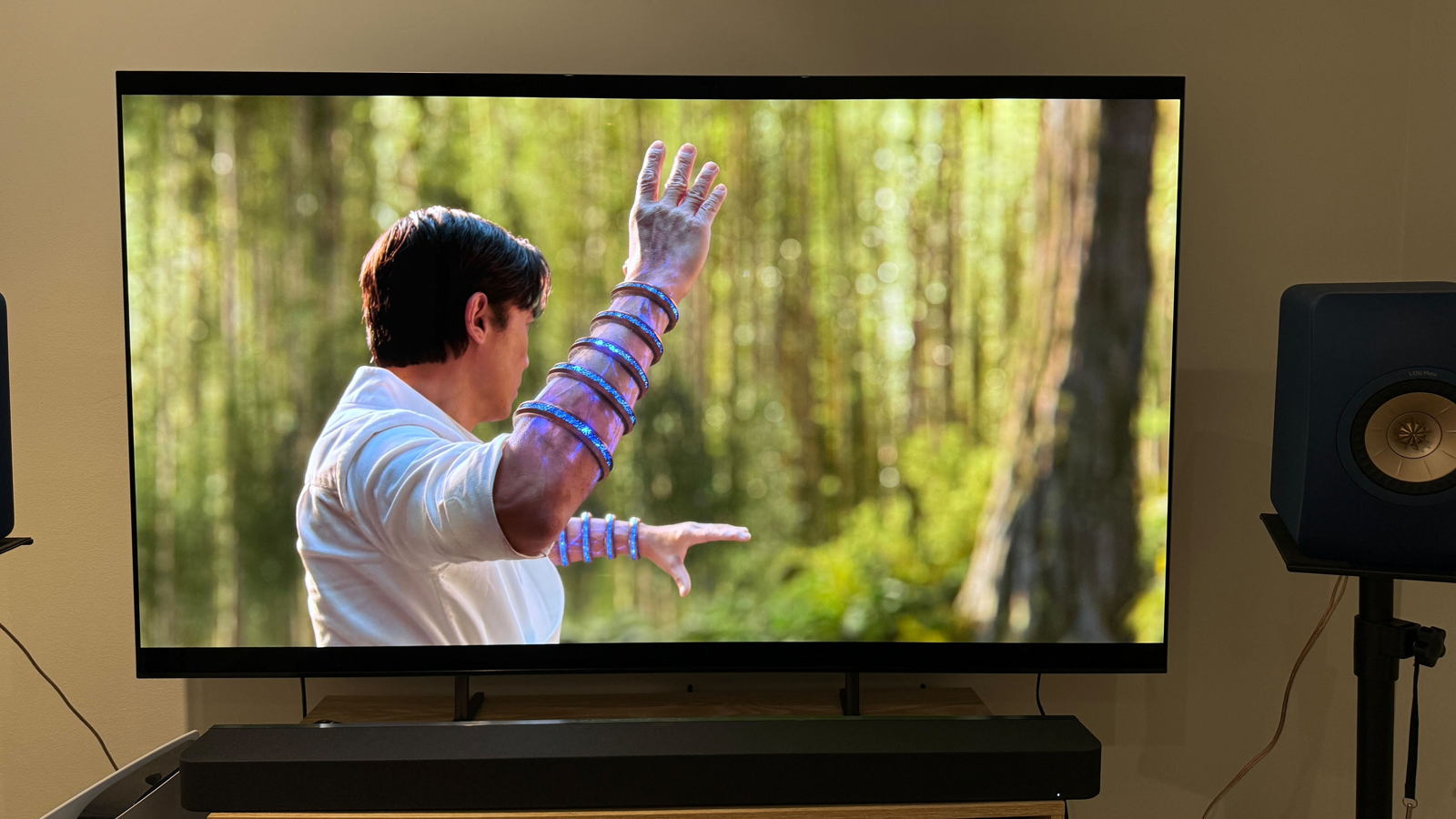
5. Sony Bravia 8
Our expert review:
Specifications
Reasons to buy
Reasons to avoid
✅ You want phenomenal built-in sound: The Sony Bravia 8's sound is direct, powerful and follows the action on-screen closely.
✅ You're a PS5 owner: The Bravia 8 may not be the most fully equipped gaming TV, but thanks to its Sony auto HDR feature, HDR tone mapping looks brilliant on PS5 games.
❌ You need the brightest OLED: Models such as the LG G4, C5, Samsung S90D and S95D have higher peak brightness than the Sony Bravia 8.
❌You need more than two HDMI 2.1 ports: The Sony Bravia 8 only offers two HDMI 2.1 ports compared to TVs such as the LG C4 and Samsung S90D which offer four.
Despite consistent improvements to picture quality, built-in audio often feels like an afterthought for most TV manufacturers. It could well be due to the increased awareness of soundbars, but the fact remains some people will want to use their TV's speakers all the time. Sony is one brand that is striving to make sure its TVs provide excellent quality sound and the Sony Bravia 8 is certainly no exception.
Adopting a technology called Surface Audio+, which also features on 2023's A80L (and the TV that previously held this spot) the Bravia 8 integrates actuators behind the screen to pass sound through it. The result is more direct, powerful audio. What's particularly impressive is how well the Bravia 8's speaker system is able to process Dolby Atmos effects to create a more immersive experience with object sounds being accurately placed within the soundfield.
Another interesting feature is the 'Acoustic Center Sync', which allows a compatible soundbar to be connected to the TV to become the centre speakers itself, enabling a bolder, more room-filling sound.
It's not just a fantastic TV for sound, though, the Sony Bravia 8 has a brilliant, refined picture that shows detailed shadows and sharpness. It does get a slight brightness boost over the A80L thanks to a new processor, which certainly helps with HDR content. It also features 4K 120Hz gaming support on two of its HDMI ports.
Read our full Sony A80L review
The best 65-inch TV for wall-mounting
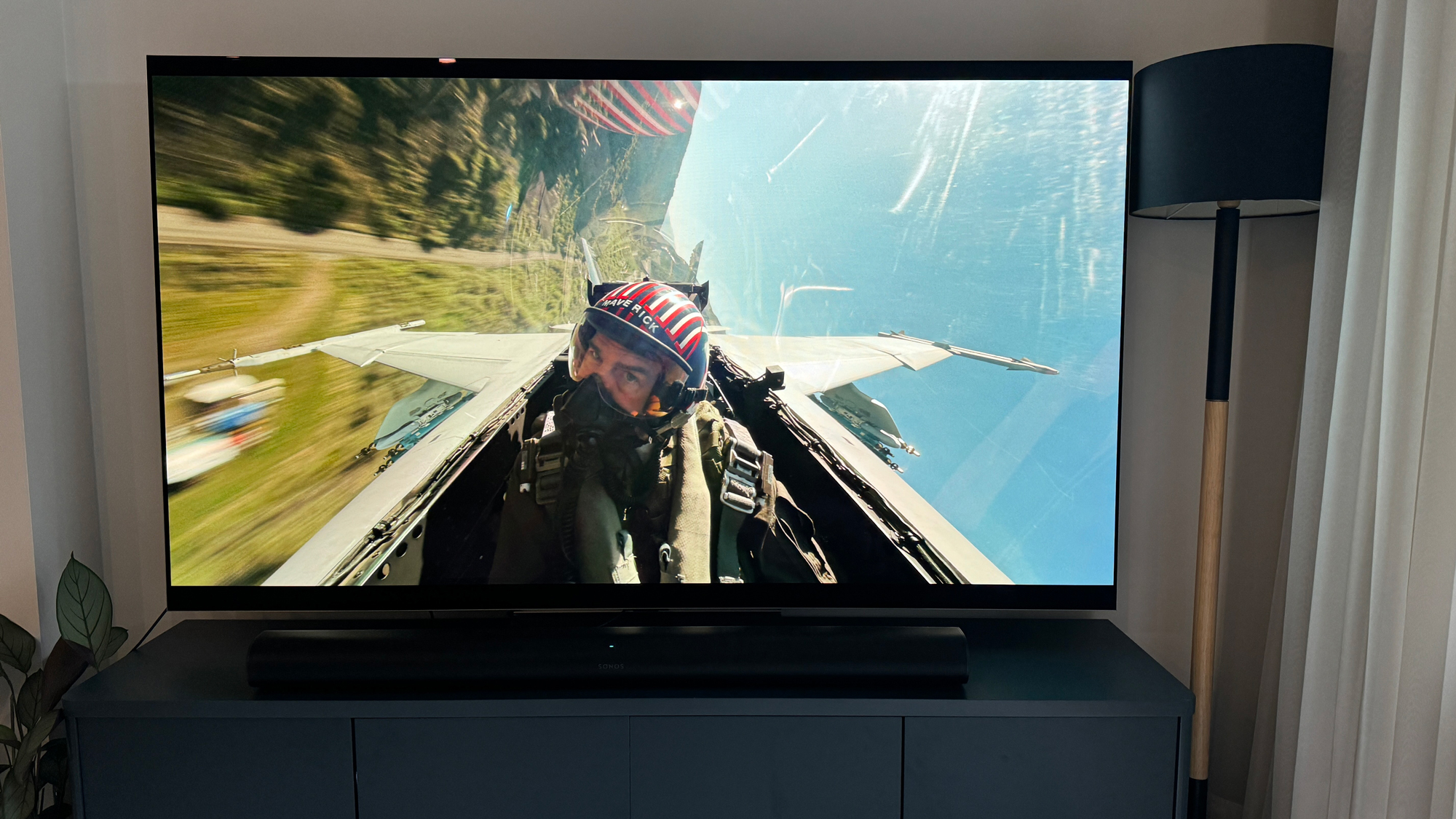
6. LG G4 OLED
Our expert review:
Specifications
Reasons to buy
Reasons to avoid
✅ You need a TV that looks great on the wall: The G4 comes with a slim fit-wall mount and trim design, making it the ideal TV for your wall.
✅ You want a great all-rounder: A colourful, detailed picture and plenty of gaming features mean the G4 can do everything very well.
❌ You need great built-in sound: Although decent, there are rival and even cheaper TVs such that have superior built-in sound to the G4.
❌You want the brightest OLED: It is bright make no mistake, but the Samsung S95D can go brighter.
The LG G4 is a beautiful TV, not just in picture quality (thanks to its second-generation MLA technology) but also physically. A slim bezel, trim frame and razor-thin depth means this TV looks gorgeous, particularly on the wall. Thankfully as well, the wall-mount for the G4 is in the box.
LG's G4 is not just a physically appealing TV. An extra brightness boost with 1,489 nits of measured peak brightness gives the G4 phenomenal picture quality with vivid colour and deep blacks. Another impressive feat is the fact that the picture, despite all this added brightness, looks natural and life-like without being too overblown by the boost in brightness levels from the MLA tech.
The gaming features and performance of the LG G4 are also impressive. With four HDMI 2.1 ports that support 144Hz gaming, VRR, ALLM as well as Nvidia G-sync and AMD FreeSync, the G4 also looks stunning, even during graphically intense moments. The Game Optimizer mode gives you plenty of settings to tweak to get the best out of video games and even adjusts settings to a game based on its genre with one option within the game menu, and it does a great job while it’s at it.
While the G4 isn't the brightest OLED you can get (look to the Samsung S95D for that) and is still a premium-priced TV, the G4 delivers in most every category. (Even its built-in sound is solid, though not best-in-class.) For this marvel of an OLED TV, a wall-mount installation will be the best fit.
Read our full LG G4 review
How to choose the best 65-inch TV
Should I buy a 65-inch TV?
We’ve answered this question in a much more detailed guide elsewhere on TechRadar, but the short answer is: yes, if you can afford to.
Basically, a bigger TV is often a better TV and, as mentioned earlier, these large-scale displays typically boast the best specification when it comes to new tech and useful features.
As 65-inch models are becoming increasingly popular, too, they’re also becoming less expensive, and we’d almost always recommend parting with a little bit more money to enjoy the benefits of such an impressive screen size.
Which is the best 4K TV brand?
The question of the best 4K TV brand (for 65-inch models, in particular) is a difficult one to answer when there’s so many great models out there. Displays from the likes of LG, Sony and Samsung regularly make this list, but they’re often joined by equivalent models from brands like Hisense and Panasonic.
A better question might concern what to look for when buying a 65-inch 4K TV, to which we’d say picture quality, app support, other handy bells and whistles like voice control and, of course, price.
Features like HDR support, Dolby Vision and Atmos, OLED panels and the like can be real differentiators, too, when it comes to finding the 65-inch 4K TV with the best viewing experience, though it’s no surprise that the more of these extras a display has, the more expensive it tends to be.
What is 4K resolution?
4K is, essentially, an ultra-high-definition screen resolution. Also called UHD or 4K UHD, the display technology has become the default screen resolution across all of the TVs that you’re likely to see in stores today – as well as many PC monitors, too.
The very best UHD TVs pack over eight million pixels in their high-res displays – that’s four times the amount you’ll find on the Full HD panels in today's small TVs.
You don’t necessarily need access to 4K entertainment content to enjoy the benefits of 4K resolution, either, since many of the best 4K TVs – i.e. most of the 65-inch displays on this list – boast impressive upscaling technologies that bolster content filmed in HD.
The only displays which sport a sharper picture are the 8K variety – though, being a still-new technology, choice in that department is much more limited and, naturally, 8K models are far more expensive.
How we tested the best 65-inch TVs
Our team selects the best 65-inch TVs based on a few main factors: their overall picture performance including contrast, color saturation and motion handling, as well as their feature set, design and smart TV platform. We're looking for TVs that are well-built and have the technology to last for the next few years.
Obviously, there is a level of subjectivity that goes into the review process, however, we strive to maintain fairness across brands by testing the same type of content on each screen (HD/SDR, 4K/HDR, games, movies and music) and reporting what we've found the experience to be like.
We test the brightness and color range using a colorimeter and Portrait Displays’ Calman calibration software. We test each set straight 'out-of-the-box' as well as after calibrating the screens ourselves, so that we can tell you what you'll get if you don't tweak at all, as well as what the TVs are capable of in the right hands.
Like our readers, our writers' and editors' room layouts differ and may cause slight disparities in testing, however, we also test a lot of sets in a dedicated testing room, while also making every attempt to question our assumptions and troubleshoot our issues with performance in every review.
The latest updates to this best 65-inch TVs guide
15 October 2024
Completed a full overhaul of the entire guide to bring it up to date. All previous TVs have been replaced with 2024 models.
Benchmark test results have been added to all entries, too.
Get daily insight, inspiration and deals in your inbox
Sign up for breaking news, reviews, opinion, top tech deals, and more.

Max is a senior staff writer for TechRadar who covers home entertainment and audio first, NBN second and virtually anything else that falls under the consumer electronics umbrella third. He's also a bit of an ecommerce fiend, particularly when it comes to finding the latest coupon codes for a variety of publication. He has written for TechRadar's sister publication What Hi-Fi? as well as Pocket-lint, and he's also a regular contributor to Australian Hi-Fi and Audio Esoterica. Max also dabbled in the men's lifestyle publication space, but is now firmly rooted in his first passion of technology.
- Matt BoltonManaging Editor, Entertainment
- James DavidsonTV Hardware Staff Writer, Home Entertainment